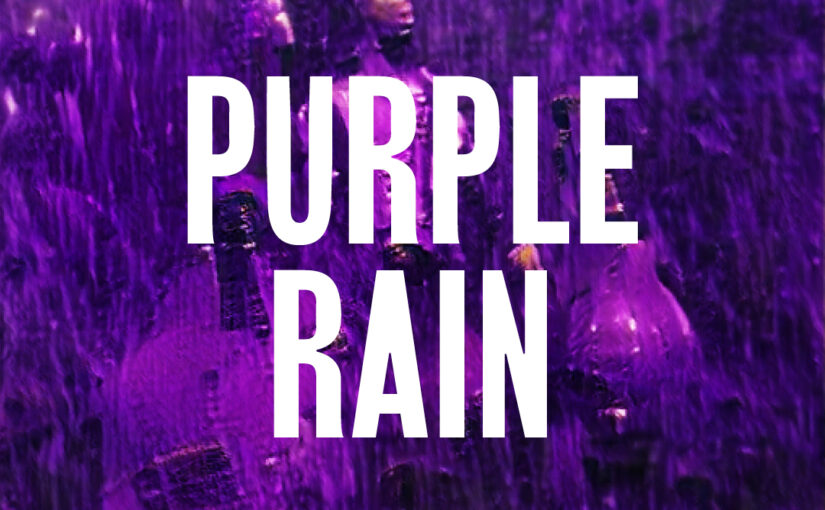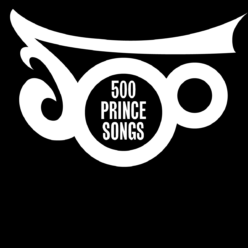Purple Rain (1984)
I needed a run up for this one. A couple of days basking in the various performances: the First Avenue debut; Rave Un2 the Year 2000; the Super Bowl half-time show. The song looms so large over Prince’s legacy that attempting to wrap my head around it is like trying to picture the vastness of space. Human minds aren’t equipped for the task. I’m as overwhelmed as Stevie Nicks when she received the instrumental from Prince to add lyrics. In her words: “I can’t do it… It’s too much for me.” Yet, I’ll try.
It’s strange to think Purple Rain – the Revolution’s signature anthem – could have been a country duet with the singer from Fleetwood Mac. Praise be that its destiny, like in the movie, was to become a band collaboration instead. The writing process didn’t quite go like it did on screen, with Wendy giving Prince a tape titled Slow Groove, but she was instrumental in shaping the sound. Late in rehearsal one night, Prince suggested working on something new. He introduced the band to the basic idea of Purple Rain and, as Fink recalls, told them to “play what you feel”. Wendy, a new addition to the line-up and eager to impress, toyed with Prince’s chord progression and turned it into the anthemic opening section that speaks in goosebumps. The rest of the band also worked their voodoo and later that summer they performed it live for the first time which, with a little trimming and polish, is the recording found on the album. The one the rest of the world hears when they think of Prince. His lighters-in-the-air epitaph.
You can divide Prince’s career into before and after the Purple Rain moment. In the movie, this occurs when he performs the climactic title song. The Prince that coughs nervously before launching into it, is different to the Prince that ends it. Never again will he face a sea of blank-eyed faces. Megastardom has arrived. I believe that’s close to what happened in real life too. Once people heard Purple Rain, either as the album closer or the cinematic denouement, their relationship to Prince changed, which changed him too. Its crescendo, along with the iconic intro to Let’s Go Crazy are the defining moments of both the album and movie. Better songs are found therein but none are as irreplaceable. When Doves Cry was the big lead single, but who’s to say one of the B-sides (17 Days, She’s Always in my Hair, Erotic City) wouldn’t have had the same success. The Beautiful Ones is a personal favourite but if the inferior Electric Intercourse had remained instead, the album would still have hit multi-platinum. Swap one of the other songs for any of the hidden classics from that period – The Glamorous Life, Wonderful Ass, We Can Fuck, G-Spot – and the album would still have catapulted him into the stratosphere. But take away the album’s intro where he describes the afterlife, or the closing crescendo where he guides us there, and it’s no longer Purple Rain. There are spiritual references throughout the album, but those two definitive moments – the spinechilling bookends – wrap it up in an embrace that must come from a profound and deeply personal place. It’s no accident they are the two songs he left blank when writing his own (unpublished) liner notes for the Hits compilation – reducing them to a pithy one liner must have seemed trite. Prince is on record saying he had a spiritual experience during the Purple Rain period. One he hasn’t talked candidly about, but it feels like he’s communicating a revelation to us here. That is the true message of Purple Rain.
Too much has been written about how Prince created it in a bid for maximum crossover success – a Stairway to Heaven for the white rock audience that had started to pay attention after Little Red Corvette. It pays tribute to rock’s power ballads, sure – he was worried it sounded too similar to one of Journey’s hits and sought their approval before release – but focusing on its whiteness is to lose sight of its blackness. Purple Rain is heavily influenced by gospel music. The electric grand piano and wordless hosannas provide the song with a spiritual intensity, drawing from Afro-American gospel roots, like Stairway to Heaven drew from Celtic folk. He’s back at the start of the album but now he’s no longer addressing the congregation. He’s addressing the one he loves. An ex-lover? His father (to whom the song gets dedicated in the film)? Is he even singing as a messiah? The lyrics are open to interpretation but on the record sleeve, an extra printed verse to Darling Nikki casts some light on the title. It reads “Sometimes the world’s a storm. One day soon the storm will pass and all will be bright and peaceful. Fearlessly bathe in the purple rain”. In 1999 he linked a purple sky with Judgement Day. The purple rain is God’s cleansing fire during the apocalypse, before the “bright and peaceful” dawn arrives. Prince opens up the heavens and recreates the moment of ascent for us poor souls trapped in our decaying meat bodies.
It was only fitting that it was the last song he performed live in concert, before ascending himself a week later. The preceding song at that show was his mournful elegy Sometimes it Snows in April. He could have left us in sorrow, but instead chose to leave us laughing in the purple rain.

